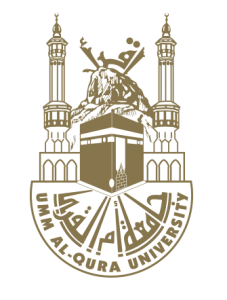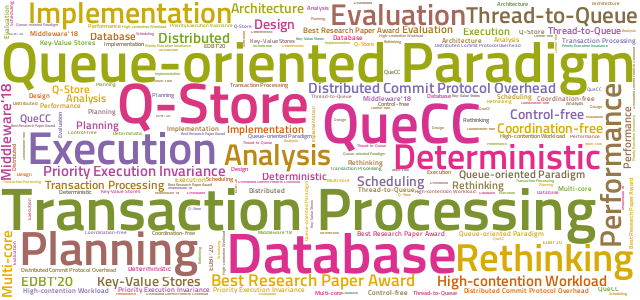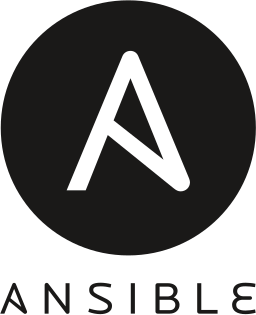
Thamir M. Qadah
I am currently an Assistant Professor of Computer Science at Umm Al-Qura University. I received my Ph.D. from the Elmore Family School of Electrical and Computer Engineering, Purdue University, West Lafayette, Indiana. My specialization is Software Systems. I was co-advised by Prof. Mohammad Sadoghi and Prof. Arif Ghafoor. I am also very fortunate to have worked closely with Prof. Walid Aref. I am an alumnus of the superb Exploratory Systems Lab at UC Davis (formerly at Purdue). In 2019, I interned at Datometry which is leading the frontiers of Adaptive Database Virtualization technologies.
Biography
Thamir M. Qadah is an Assistant Professor of Computer Science at Umm Al-Qura University, Makkah. He received his Ph.D. from the Elmore Family School of Electrical and Computer Engineering at Purdue University, West Lafayette, Indiana. He is an alumnus of the superb Exploratory Systems Lab. His research interests are in the design and implementation of secure, dependable, and high-performance software systems that exploit modern hardware. He holds an M.Sc. in Electrical and Computer Engineering (Software Systems), an M.Sc. in Computer Science, and a B.Sc. in Computer Engineering from Purdue University, Cal. State Fullerton, and King Fahd University of Petroleum and Minerals, Saudi Arabia, respectively. He also holds a post graduate certification in Teaching and Learning in Engineering from the School of Engineering Education at Purdue. He has co-authored several publications in top-tier database and systems research venues, and his research is recognized by the Best Paper Award in Middleware'18. Since 2015, He has been active in the research community as an external reviewer for top-tier conferences such as SIGMOD, VLDB, ICDE, ICDCS, ATC, EDBT, Middleware, and CIKM. Moreover, he served as a committee member of the artifact evaluation committee for SOSP'19 and ASPLOS'20.
Research Projects
Modern Transaction Processing
In this project, we aim to develop algorithms, techniques, and protocols that exploit modern hardware (e.g., many-core, multi-socket CPUs, GP-GPUs, and RDMA networks) to improve the performance, security, and dependability of database systems. We looked into improving the performance of deterministic transaction processing under variable degrees of workload contention. We published a paper proposing a novel transaction concurrency architecture called QueCC for many-core multi-socket hardware architecture. QueCC is recognized by the "Best Paper Award" in Middleware'18 (Acceptance-rate 23/98). We are also looking into improving the transaction processing performance of distributed database systems. Our Q-Store paper is going to appear in EDBT'20 (Acceptance-rate 31/151).
AIMS: Adaptive Intrusion Management System
Intrusion attacks on software systems are more common than you might think. In this project, we go beyond intrusion detection and focus on developing automated response and recovery mechanisms to allow software systems to become intrusion tolerant in a satisfactory manner.
Tornado: A Sptaio-Textual Stream Processing Engine
We are building a stream processing engine based on Apache Storm to answer spatio-textual queries over data stream in real-time. We utilize an adaptive load balancing technique for the system workload. Further, we provide a rich map-assisted query interface that allows users to compose arbitrary queries. Collaborators: Ahmed R. Mahmood, Ahmed M. Aly, El Kindi Rezig, Anas Daghistani, Amgad Madkour, Ahmed S. Abdelhamid, Mohamed S. Hassan,Walid G. Aref, Saleh Basalamah. Check out our paper. [PDF]
AQWA: Adaptive Query-Workload-Aware Partitioning of Big Spatial Data
In this project, we introduced a technique for speeding up spatial queries (e.g. range and knn queries) over spatial data in Hadoop MapReduce. This technique is adaptive to the query workload as it progressively splits partitions based on a statistical cost function. The splitting will allow more parallelism in the reduce phase which will contribute to the speedup. Collaborators: Ahmed M. Aly, Ahmed R. Mahmood, Mohamed S. Hassan, Walid G. Aref, Mourad Ouzzani, Hazem Elmeleegy. Check out our paper. [PDF]
Course Projects
Course Project for ECE 695: Human-Computer Interaction
In this project, we developed a complete live-programming system for exploratory data analysis of geo-tagged data streams. Learn more about this project here.
Course Project for ECE 695 Operating Systems Design and Implementation
[Course Project] In this project we aimed to seamlessly extend the current API without breaking the current implementation. To do that we introduced a Java class called FileEventTracker, that augments the current Tachyon client API with file event notifications. It allows registering one or more event listeners to a certain path. The listeners must implement a Java interface called FileEventListener to listen to events. This was part of a course in Operating Systems at Purdue. Collaborator: Yiyang Chang
Course Project for ECE 624: Multimedia Systems
In this project, I studied how to represent the semantic knowledge of moving objects so that we can perform logical inference to obtain relationships among them. I used the concept of Semantic Network (SN) to represent such knowledge. An instance of the (SN) is dynamically built given a stream of updates for a set of moving objects. I implemented a visualization interface to visualize the semantic network as it updates itself. Furthermore, given a set of logical inference rules that can be applied on the SN, we can obtain additional relationships among moving objects. This work was done as a part of a course in Multimedia Systems at Purdue.
Course Project for ECE 595: Computer Network Systems
We studied the performance of Memcached deployed over heterogenous servers (i.e. servers with varying RAM and CPU specs). We used the Yahoo Cloud Serving Benchmark (YCSB) for this purpose. Furthermore, we introduced a modification to the Memcached client to be aware of the fact that the servers are heterogeneous which resulted in increased performance. This project was part of a course in Computer Systems Network at Purdue. Collaborator: Mosab Khayat.
Course Project for CS 541: Database Systems
We designed and implemented a full-fledge database system in Java. This includes Command-line-interpreter (CLI), buffer manager, and query processing engine. This was part of a course in Database Systems at Purdue. Collaborator: Mohammad Qudeisat
Course Project for ECE 573: Compiler and Translation Systems Engineering
I designed and implemented a full-fledge compiler for a simple language as a part of a course in Compiler and Translation Systems at Purdue.
Course Project for ECE 695: Introduction to Visual Analytics
In this project, I designed and implemented a visual analytics tool for browsing products at Amazon. This was part of a course in Visual Analytics at Purdue.








